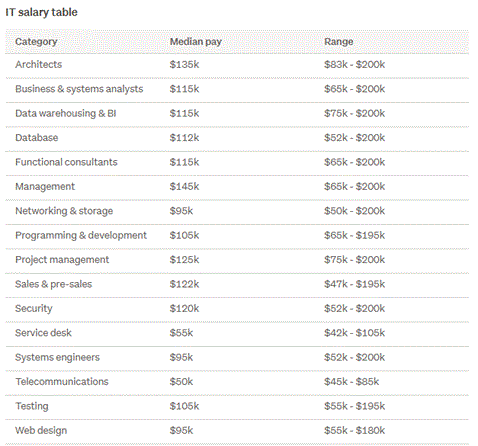2016年6月英语四级仔细阅读预测一篇
Happiness and Income
Poets, songwriters and left-wing politicians hate the idea, but for decades opinion-poll evidence has been clear: money buys happiness and the richer you are, the more likely you are to express satisfaction with your life. Until now. A survey of 43 countries published on October 30th by the Pew Research Centre of Washington, DC, shows that people in emerging markets are within a whisker of (一步之遥) expressing the same level of satisfaction as people in rich countries. It is the biggest qualification to the standard view of happiness and income seen so far.
The Pew poll asks respondents to measure, on a scale from zero to ten, how good their lives are. (Those who say between seven and ten are counted as happy.) In 2007, 57% of respondents in rich countries put themselves in the top four tiers; in emerging markets the share was 33%; in poor countries only 16%—a classic expression of the standard view.
But in 2014, 54% of rich-country respondents counted themselves as happy, whereas in emerging markets the percentage jumped to 51%. This was happening just at a time when emerging markets' chances of converging economically with the West seemed to be receding.
Rich countries did not experience steep declines in happiness. The decreases in America and Britain were tiny, while the share of happy Germans rose 13 points. A large drop in formerly joyful Spain ensured a modest overall decline for the rich. But the convergence happened thanks to huge improvements in countries such as Indonesia (+35) and Pakistan (+22). In 12 of the 24 emerging markets, half or more people rate their life satisfaction in the top tiers of the ladder.
This is not to say the link between income and satisfaction has been snapped. Poor countries still lag behind: only a quarter of the people there are in the happy tiers—half the level of the other two groups. There is also a clear link between happiness and income growth (as opposed to income levels). China's GDP rose at an annual average rate of 10% in 2007-14 and its happiness level rose 26 points.
Within countries, richer people express more satisfaction than their poorer neighbours. The study divided respondents into categories with higher and lower incomes and fewer and more household goods. In every country in every group, richer folk with more goods expressed higher levels of happiness. So at a personal level, money does buy happiness. And if you ask people about different aspects of their lives—health, family life, religion, standard of living—it turns out that satisfaction with living standards still has the biggest influence on happiness.
1. What is the relationship between happiness and income?
A) Income is not strongly related to happiness.
B) Happiness does not depend on how much you earn.
C) The higher your income is, the more likely you will feel satisfied.
D) The more you are satisfied, the more you can earn every month.
2. According to the Pew poll in 2007, who rated their life satisfaction the highest?
A) People in poor countries.
B) People in rich countries.
C) People in emerging markets.
D) People in developing areas.
3. What contributed to the increase of happiness in emerging markets?
A) Economic downturn.
B) Investment in emerging markets.
C) Their rapid development.
D) More operation with rich countries.
4. Why does the author mention China's GDP?
A) To prove that China's GDP growth led to the happiness of people in Asia.
B) To remind readers of the progress that China has made.
C) To show that there is a link between happiness and income growth.
D) To express the author's concern about the development of emerging markets.
5. What does the study in the last paragraph show?
A) When it comes to happiness, standard living is as important as health and religion.
B) Poor people with more goods express higher levels of happiness.
C) Money can't buy happiness no matter how many goods people can obtain.
D) Richer people with more goods express more satisfaction than their poorer neighbours.
- 相关阅读
-
2021年6月英语四级仔细阅读真题/答案/解析(卷一)
新东方在线英语四级频道考后第一时间发布英语四级真题答案解析,同时新东方实力师资团队将对大学英语四级真题答案做权威解析,免费领
2021-10-12 -
2021年6月英语四级仔细阅读真题/答案/解析(卷三)
新东方在线英语四级频道考后第一时间发布英语四级真题答案解析,同时新东方实力师资团队将对大学英语四级真题答案做权威解析,免费领
2021-10-12 -
2020年12月英语四级仔细阅读试题解析-第一套 Part C(新东方)
新东方在线英语四级频道考后发布英语四级真题答案解析,同时新东方实力师资团队将对英语四级真题答案做权威解析,免费领取【大学英语
2021-10-11 -
2020年12月英语四级仔细阅读试题解析第一套 Part C(新东方)
新东方在线英语四级频道考后发布英语四级真题答案解析,同时新东方实力师资团队将对英语四级真题答案做权威解析,免费领取【大学英语
2021-10-11 -
2020年12月英语四级仔细阅读真题卷三(新东方在线)
新东方在线英语四级频道考后发布英语四级真题答案解析,同时新东方实力师资团队将对英语四级真题答案做权威解析,免费领取【大学英语
2021-10-11 -
2020年12月英语四级仔细阅读真题(卷一)
新东方在线英语四级频道考后发布英语四级真题答案解析,同时新东方实力师资团队将对英语四级真题答案做权威解析,免费领取【大学英语
2021-10-11 -
2020年12月大学英语四级仔细阅读第二套(网友版)
新东方在线英语四级频道考后发布英语四级真题答案解析,同时新东方实力师资团队将对英语四级真题答案做权威解析,免费领取【大学英语
2021-10-11
TOPS
- 日排行/
- 周排行/
- 原创
- 日排行/
- 周排行/
- 原创
- 1 无锡学院2022年6月英语六级准考证打印入口|时间:6月1日
- 2 2022年6月英语四级作文热门话题及范文:教育不公平
- 3 泰州学院2022年6月英语六级准考证打印入口|时间:6月1日
- 4 吉林四级考试时间2022年上半年
- 5 2022年6月英语四级作文热门话题及范文:网络游戏
- 6 宿迁学院2022年6月英语六级准考证打印入口|时间:6月1日
- 7 2022年6月英语四级作文热门话题及范文:电力短缺
- 8 苏州城市学院2022年6月英语六级准考证打印入口|时间:6月1日
- 9 2022年6月英语四级作文热门话题及范文:手机的利弊
- 10 常熟理工学院2022年6月英语六级准考证打印入口|时间:6月1日









